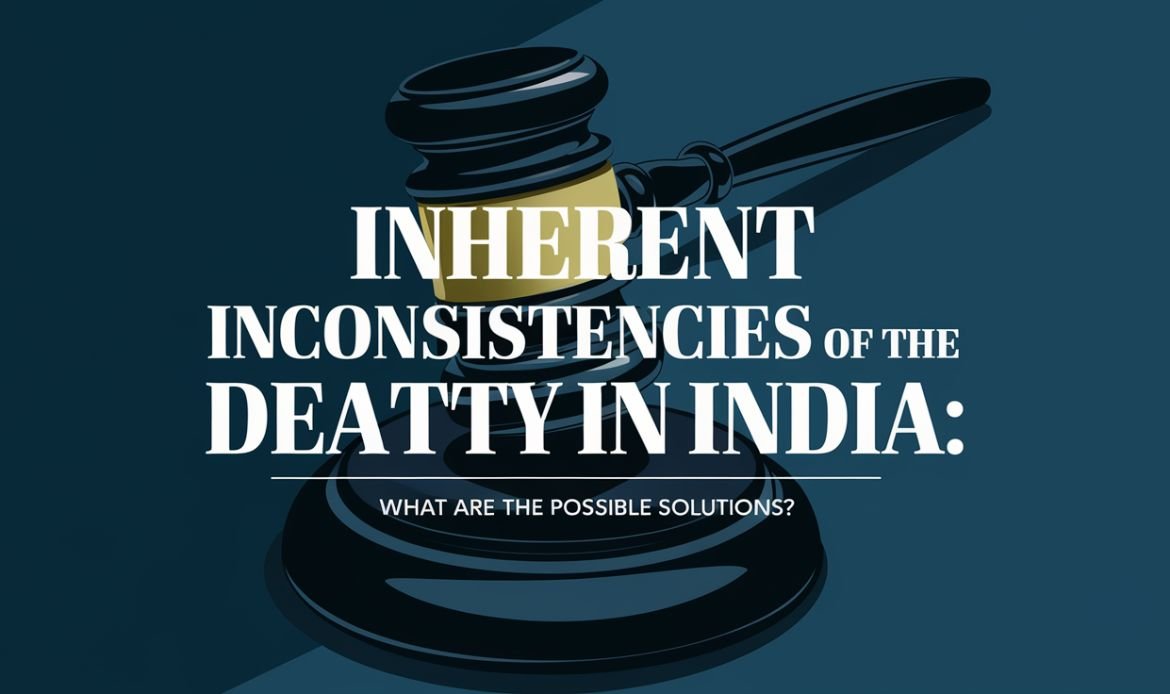In India, the death penalty has been a subject of debate for many years now. This is true from the perspective of human and moral rights as well as due to various inconsistencies in its administration. Such inconsistencies are the result of changes in legislative and judicial laws over time, which lead to disparities in awarding the death sentence to accused persons. Take a look at the various inherent inconsistencies of the death penalty in India and how temporal changes in the law have an impact on its administration.
How Does Law Impact the Administration of the Death Penalty in India?
Various cases of co-convicts being sentenced to death for the same crime highlight that the timing of executions can result in unjust and unequal sentencing outcomes. Further, it can also be seen how the timing of judicial decisions can have an impact on awarding sentences.
Inconsistencies also arise due to legislative changes. The Code of Criminal Procedure (Amendment) Act, 1955 does not require the courts to record reasons for not awarding the death penalty in case of capital offenses. Both life imprisonment and death penalty can have similar validity, going by this.
Even if the sentencing framework is ‘absolutely consistent’, there would still be discrepancies due to the temporality of legal changes. With legislative reforms, modifications in judicial interpretations and changes in societal values, the law evolves continuously. Naturally, due to the timing of their trials and appeals, people who commit the same crime under similar circumstances might get different punishments.
Even when the legal system tries to amend past inconsistencies, often, some convicts fail to benefit from the same on time. Due to such inherent inconsistencies, the principles of justice and equality – which are fundamental to the rule of law – get violated.
What are the Probable Solutions?
There are quite a few possible solutions:
- Making death penalty mandatory for capital offenses
This was regarded as unconstitutional during the case of Mithu Singh v. State of Punjab. It was considered that the right to a fair trial will be hampered if death sentences were made mandatory. It will remove any chance for judicial discretion.
- Keeping laws related to the death penalty unchanged
If this is done, it can prevent impacting of sentences due to changes in legislative and judicial systems. But it can contradict the role of the legal system in keeping up with changes in constitutional interpretations and societal norms.
- Retrospective application of legal changes
While this can be a proper solution, it can be challenging to come up with a fair time frame for appealing under new laws.
- Doing away with the death penalty
As capital punishment is irreversible and laws regarding the death penalty can be prone to inconsistencies and errors, abolition – as have happened in many countries – can be the way forward. However, the question of deterrent punishment, heinous wrongdoers having no benefit for the society and more criminals burdening the exchequer are some issues to consider.
Due to such inherent inconsistencies and flaws related to possible solutions, the death penalty in India needs serious reconsideration. The Government of India and the legal and judicial system should do a proper rethinking of the existing laws regarding this type of penalty, to ensure fairness in all aspects.
Find the top law firm in Kolkata for your legal issues.

